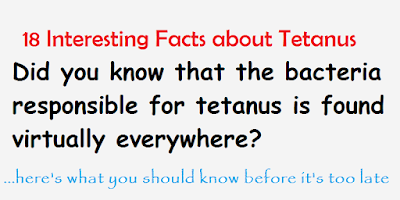Research proves Mega dose Vitamin C Kills Cancer
Research proves Mega dose Vitamin C Kills Cancer
By: Arlene Gentallan
Clinical trials showed remarkable outcome. At extremely high levels, vitamin c aids in destroying cancer cells while leaving normal cells unharmed. Extremely high blood levels of vitamin c is achieved by administering it directly into the bloodstream (intravenous route), thus bypassing the tight control imposed by the gastrointestinal system.
Buettler and his colleagues at the University of Iowa are on the path to make conventional cancer treatment more effective and tolerable by combining it with intravenous vitamin c.
Conventional cancer treatment chemotherapy and radiation therapy have many unwanted side effects like fatigue, nausea, vomiting, loss of appetite, bleeding tendency, and hair loss. Adding vitamin c to these conventional treatment produces better results. It makes treatment more effective by increasing the vulnerability of cancer cells to the tumor-busting action of chemo and radiation. It slows progression of cancer growth and increases lifespan of cancer patients.
Taking mega doses of vitamin c (which is about 300 times higher than normal) during cancer treatment was found to be safe and well tolerated among patients. Extremely high doses of vitamin c is toxic to cancer cells but not to normal cells.
Only minimal side effects were observed when vitamin c was given like dry mouth, increased frequency of urination and a temporary increase in blood pressure only while receiving chemotherapy and radiation therapy.
How do Vitamin C Kills Cancer cells
Research published in "Redox Biology" identified a clever mechanism by which vitamin c kills cancer cells. When vitamin c reacts with certain molecules in cells, hydrogen peroxide is produced which damages the cell itself. Certain cancer cells are prone to the damaging effect of hydrogen peroxide because, unlike normal cells, these cells have low levels of enzyme "catalase" which makes them unable to get rid of hydrogen peroxide effectively.
The Research
The study published in the journal Cancel Cells provide insight to the impact of vitamin c to standard treatments against aggressive types of brain cancer in humans-- glioblastoma multiforme and non-small lung cancer.
11 patients with glioblastoma multiforme (an aggressive brain cancer) participated in the phase 1 clinical trial. They were given 3 doses of intravenous vitamin c per week for 2 months in conjunction with chemotherapy and radiation therapy. Each dose increases blood level of vitamin c to about 300 times higher than normal. After 2 months, the dose was then decreased to 2 doses per week for another 7 months.
In the phase 2 clinical trial, 57 volunteers with stage 4 non-small lung cancer received 2 doses of intravenous vitamin c per week during each 3 week chemotherapy which lasted for 4 months.
Results showed increase survival rate and better outcome among those cancer patients who received vitamin c in addition to chemotherapy and radiation therapy.
 |
| Research proves Mega dose Vitamin C Kills Cancer |
By: Arlene Gentallan
Clinical trials showed remarkable outcome. At extremely high levels, vitamin c aids in destroying cancer cells while leaving normal cells unharmed. Extremely high blood levels of vitamin c is achieved by administering it directly into the bloodstream (intravenous route), thus bypassing the tight control imposed by the gastrointestinal system.
Buettler and his colleagues at the University of Iowa are on the path to make conventional cancer treatment more effective and tolerable by combining it with intravenous vitamin c.
Conventional cancer treatment chemotherapy and radiation therapy have many unwanted side effects like fatigue, nausea, vomiting, loss of appetite, bleeding tendency, and hair loss. Adding vitamin c to these conventional treatment produces better results. It makes treatment more effective by increasing the vulnerability of cancer cells to the tumor-busting action of chemo and radiation. It slows progression of cancer growth and increases lifespan of cancer patients.
Taking mega doses of vitamin c (which is about 300 times higher than normal) during cancer treatment was found to be safe and well tolerated among patients. Extremely high doses of vitamin c is toxic to cancer cells but not to normal cells.
Only minimal side effects were observed when vitamin c was given like dry mouth, increased frequency of urination and a temporary increase in blood pressure only while receiving chemotherapy and radiation therapy.
How do Vitamin C Kills Cancer cells
Research published in "Redox Biology" identified a clever mechanism by which vitamin c kills cancer cells. When vitamin c reacts with certain molecules in cells, hydrogen peroxide is produced which damages the cell itself. Certain cancer cells are prone to the damaging effect of hydrogen peroxide because, unlike normal cells, these cells have low levels of enzyme "catalase" which makes them unable to get rid of hydrogen peroxide effectively.
The Research
The study published in the journal Cancel Cells provide insight to the impact of vitamin c to standard treatments against aggressive types of brain cancer in humans-- glioblastoma multiforme and non-small lung cancer.
11 patients with glioblastoma multiforme (an aggressive brain cancer) participated in the phase 1 clinical trial. They were given 3 doses of intravenous vitamin c per week for 2 months in conjunction with chemotherapy and radiation therapy. Each dose increases blood level of vitamin c to about 300 times higher than normal. After 2 months, the dose was then decreased to 2 doses per week for another 7 months.
In the phase 2 clinical trial, 57 volunteers with stage 4 non-small lung cancer received 2 doses of intravenous vitamin c per week during each 3 week chemotherapy which lasted for 4 months.
Results showed increase survival rate and better outcome among those cancer patients who received vitamin c in addition to chemotherapy and radiation therapy.





